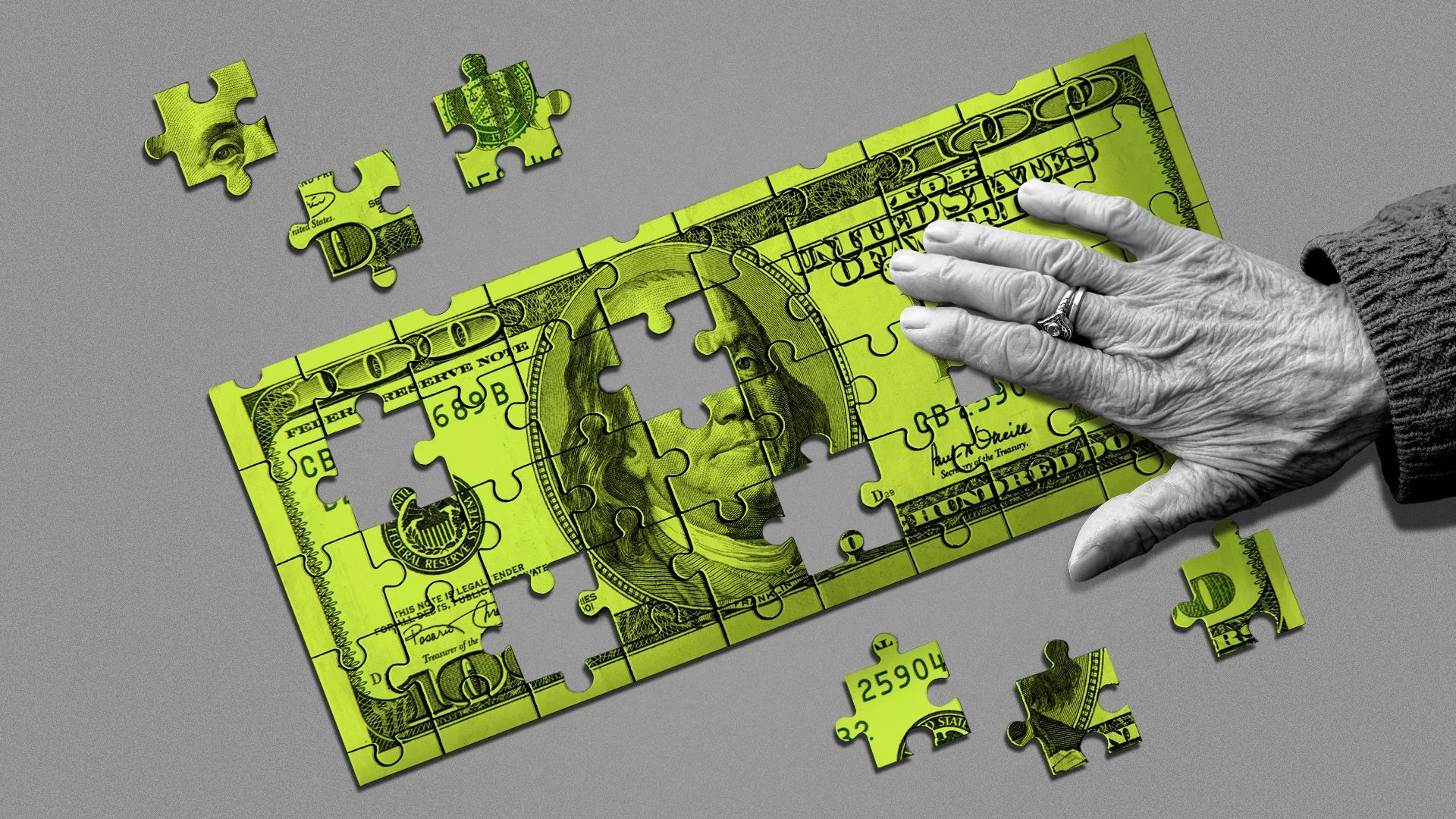Old age is the trickiest part of life to navigate financially, with its unpredictable care expenses and unknowable longevity. It’s also the point at which cognitive decline can scupper even the savviest financial plan.
Why it matters: A recent American Economic Association paper surveyed Americans in or nearing retirement and asked them about the risks of handing over control of their money too early — or too late.
- By the numbers: On average, the respondents said that waiting too long to hand over control would cost them 18% of their wealth. On the other hand, they didn’t want to cede control too early, they said, because that would cost 10% of their wealth.
The big picture: In a world of individual retirement plans rather than defined-benefit pensions, an enormous onus is placed on retirees to manage their wealth and income — what to invest in, how much to withdraw, when to retire and more. These calculations are fearsome even for the most financially savvy; for most Americans, they’re almost unfathomable.
- In a recent Allianz poll, for instance, 61% of Americans said they were more afraid of running out of money than they were of death itself.
- 59% said they had no idea how they were going to pay for their health care costs in retirement.
Between the lines: Money is more important than happiness, at least according to the Allianz poll.
- The biggest regret in all generations is not saving enough for retirement, while fewer than one in three said they wished they had spent more money on activities or experiences, or even that they wished they had spent more time with their family.
The bottom line: It behooves all retirees to be on the lookout for signs of cognitive decline and to have a plan for what they intend to do if and when those signs appear.
- That kind of plan, however, barely begins to ameliorate the myriad financial worries and concerns of modern retirement.

